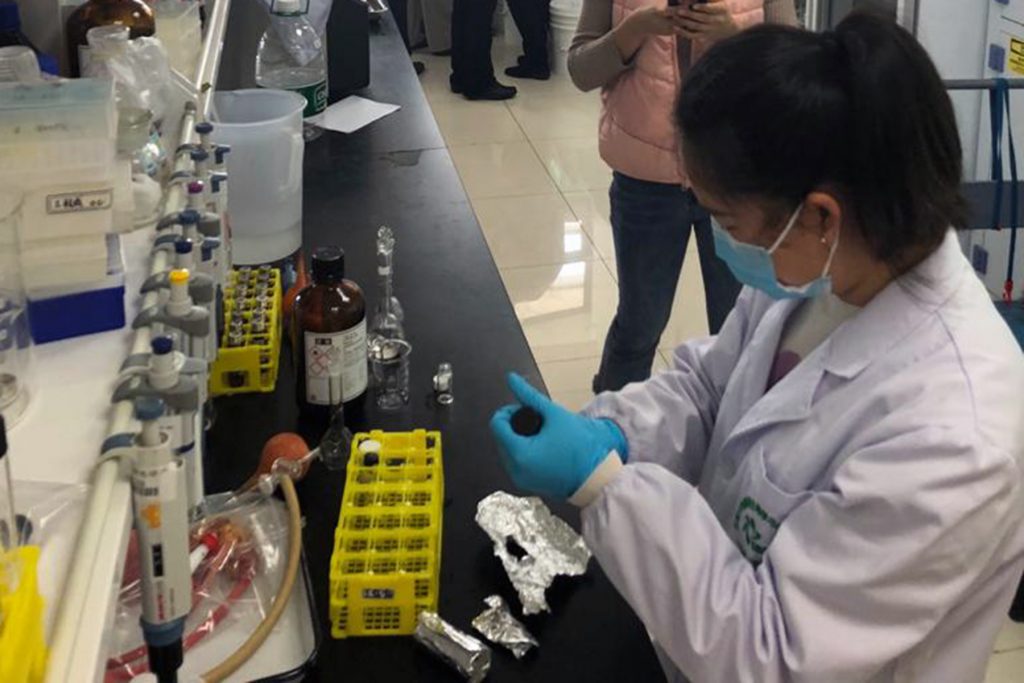Baijiu is the most-consumed liquor in the world, with sales of more than $92 billion in 2018. As the Chinese economy grows, so will baijiu consumption. Current models anticipate baijiu sales to be as large as $142 billion by 2025—54 percent growth in seven years and an astounding 222 percent growth since 2014. This 54 percent growth is poised to turn what is a 3 MMT sorghum import market into a more than 4.5 MMT sorghum import market in just seven years. Growth in Baijiu demand in China could be highly beneficial to U.S. sorghum farmers, and the Council is working to identify what U.S. sorghum varieties the baijiu companies want and need so U.S. sorghum becomes the grain of choice for Chinese baijiu producers.
Using Agricultural Trade Promotion (ATP) funding, the U.S. Grains Council successfully identified four sorghum varieties and growing conditions favorable for high-value Chinese liquor production. The study was conducted in partnership with the United Sorghum Checkoff Program (USCP) as part of a combined initiative to engage in markets that will achieve premium values for U.S. sorghum. If appropriate varieties are grown, premiums could be as high as $16 per bushel over market value.
With the help of USCP and Guangdong Junjie Agriculture Trading Co. Ltd., the Council shipped six samples of U.S. sorghum for analysis by scientists at Jiangnan Southern University in Wuxi, China, the site where the study was conducted. The samples were collected from South Dakota, Texas and Kansas. The U.S. samples were analyzed for their properties and compared to three varieties of sorghum grown in China.
The study tried to match the thousands of flavor compounds present in high-value baijiu with those exhibited by the U.S. sorghum samples. In looking at a multitude of factors including tannins, amylose, amylopectin, microbial metabolism, cyanide, yeast production, and acetic acid and others, the study found four varieties that exhibit flavor compounds for baijiu.
 The seed varieties were then communicated to growers in the United States by USCP. The next steps are to develop a recipe (a starter set of microorganisms – yeast, bacteria, and enzymes – along with some starter recipe) to be mixed with sorghum to initiate a dry fermentation process that can optimize the production of these favorable flavor compounds and other traits and conduct commercial production trials at partnering baijiu manufacturers. To do this, the Council has identified ten baijiu manufacturers in Jiangsu, Anhui, Hubei, and Sichuan provinces to partner with based on the study’s findings. China’s Jiangnan University will take the lead in developing the recipe and in conducting the commercial production trials.
The seed varieties were then communicated to growers in the United States by USCP. The next steps are to develop a recipe (a starter set of microorganisms – yeast, bacteria, and enzymes – along with some starter recipe) to be mixed with sorghum to initiate a dry fermentation process that can optimize the production of these favorable flavor compounds and other traits and conduct commercial production trials at partnering baijiu manufacturers. To do this, the Council has identified ten baijiu manufacturers in Jiangsu, Anhui, Hubei, and Sichuan provinces to partner with based on the study’s findings. China’s Jiangnan University will take the lead in developing the recipe and in conducting the commercial production trials.
This is the first successful step in opening a new, high-value market for U.S. sorghum producers. The Council is focused on capturing a portion of that 3-4 MMT sorghum import market for U.S. producers in the years to come.
About The U.S. Grains Council
The U.S. Grains Council develops export markets for U.S. barley, corn, sorghum and related products including distiller’s dried grains with solubles (DDGS) and ethanol. With full-time presence in 28 locations, the Council operates programs in more than 50 countries and the European Union. The Council believes exports are vital to global economic development and to U.S. agriculture’s profitability. Detailed information about the Council and its programs is online at www.grains.org.

